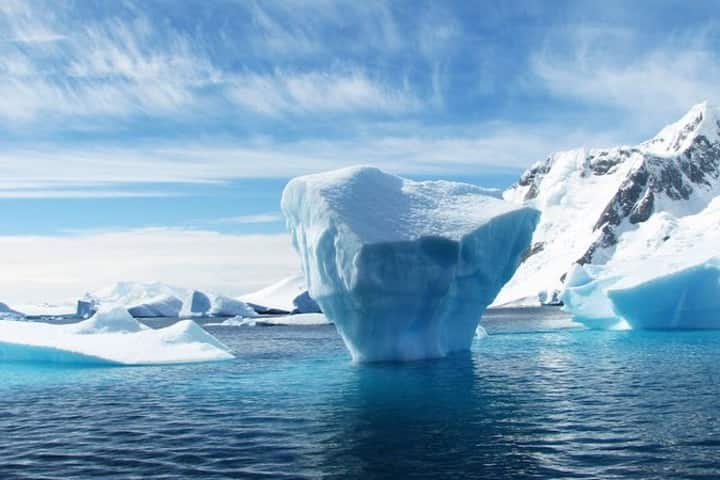

Representational image. United Nations' climate agency's State of Global Climate 2022 report stated that key glaciers used by scientists as a health check for the world shrank by more than 1.3 metres in just one year (Pic. Courtesy ANI)
Global ocean heat and acidity levels hit record highs and Antarctic sea ice and European Alps glaciers reached all-time low amounts, according to the United Nations’ climate agency’s State of Global Climate 2022 report released Friday.
The World Meteorological Organization (WMO) report states that key glaciers used by scientists as a health check for the world shrank by more than 1.3 metres in just one year and for the first time in history no snow survived the summer season on Switzerland’s glaciers.
The sea level is now rising at about double the rate it did in the 1990s, WMO Secretary-General Petteri Taalas said in a news conference. Oceans are likely to rise another half a metre to a metre by the end of century at the current rate as more ice melts from ice sheets and glaciers and warmer water expands, he added.
“Unfortunately these negative trends in weather patterns and all of these parameters may continue until the 2060s” despite efforts to reduce emissions of heat-trapping gases because of the existing pollution, Taalas said.
Global sea height and the amount of heat-trapping carbon dioxide and methane in the air has reached the highest amounts ever recorded..
Last year was close to but not quite the hottest year on record, ranking fifth or sixth hottest depending on measuring techniques. But the past eight years are the hottest eight years on record globally.
The world kept warm despite the rare third year of a La Nina, a natural temporary cooling of parts of the Pacific Ocean that changes weather worldwide.
The United Kingdom, France, Ireland, Portugal, Spain, Belgium, Luxembourg, Italy, Germany, Switzerland and New Zealand had their hottest years on record.
Global heat and other weather records go back to 1850.
“In 2022, continuous drought in East Africa, record breaking rainfall in Pakistan and record-breaking heat waves in China and Europe affected tens of millions, drove food insecurity, boosted mass migration, and cost billions of dollars in loss and damage,” Taalas said.
Africa’s drought displaced more than 1.7 million people in Somalia and Ethiopia, while Pakistan’s devastating flooding displaced about 8 million people, the report said.
India and Maldives on Friday announced the initiation of negotiations for the launch of a…
Prime Minister Narendra Modi on Friday said that India has always been a close friend…
In a significant crackdown on objectionable digital content, the Ministry of Information and Broadcasting (MIB)…
India is signalling greater openness to Chinese investment in electronics manufacturing as bilateral relations show…
Defence Minister Rajnath Singh on Friday announced that India has conducted the successful flight trials…
Prime Minister Narendra Modi arrived in Maldives on Friday as a part of his second…